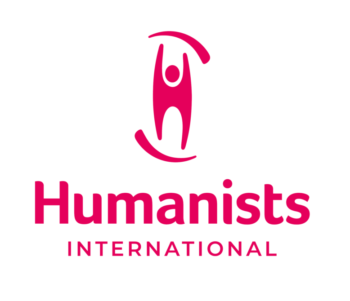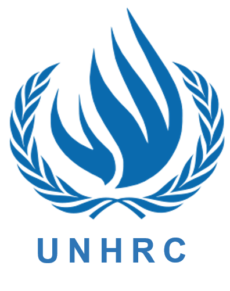
We work internationally through the Council of Europe, the United Nations Human Rights Council, and elsewhere to combat religious and racial discrimination, as well as advancing the rights of children, women, and the LGBT community globally. Our Chief Executive is currently the President of the Humanists International.
We work on all of our policy areas internationally – on education, secularism, human rights and equalities, and ethical issues – as well as on several areas that while being less prevalent within the UK, cause problems elsewhere globally – for instance, on witchcraft, slavery, and the caste system.
In addition, some issues are more pressing globally than domestically, such as freedom of religion or belief versus the threat of discrimination and apostasy laws; freedom of speech and expression versus blasphemy laws; women’s rights, particularly sexual and reproductive health; and LGBT rights.
As well as lobbying the UK Foreign Office on matters of concern, we also are accredited at the UN Human Rights Council – the only national humanist group to hold such accreditation – and make interventions there every session. We contribute annually to Humanists International’s Freedom of Thought Report, and are part of the End Blasphemy Laws campaign, which since its inception in 2015 has contributed to nine countries repealing such laws.
In depth
Internationally, threats to the freedom of the non-religious come from a wide range of sources, from individuals and groups wishing to censure freedom of thought, or criticism particularly of religion, through to powerful nations seeking to outlaw and criminalise any perceived negative discussion or criticism or portrayal of religion.
The questions of apostasy and blasphemy are of major importance – and if pursued without care they may become the most significant threat to freedom of expression to have emerged in modern times. In 13 countries, apostasy is punishable by death, while in seven the same is true for blasphemy. These countries are Afghanistan, Brunei, Iran, Malaysia, Maldives, Mauritania, Nigeria, Pakistan, Qatar, Saudi Arabia, Somalia, United Arab Emirates, and Yemen. That’s why we’re part of the End Blasphemy Laws campaign.
On top of that, other countries have seen ongoing threats to the freedom of the non-religious, such as Bangladesh, where humanist bloggers – Avijit Roy, Washiqur Rahman, Ananta Bijoy Das, Niloy Neel, and Nazimuddin Samad, and the secularist publisher Faysal Arefin Dipon, were all hacked to death with machetes. We have been putting pressure on the UK Government and through the UN Human Rights Council to see these attacks stopped. We have hosted three of the bloggers – Asif Mohiuddin, Bonya Ahmed, and Arif Rahman – in speaking out at events in the UK, as well as arranging meetings with them and relevant government ministers and special advisors.
What we’re doing
- We are an active member of Humanists International (our Chief Executive is its President) and the European Humanist Federation.
- In 2019 we submitted evidence to the UK Parliament’s Foreign Affairs Committee about non-religious persecution across the globe. We highlighted shocking examples where non-religious people are murdered for their beliefs and called on the UK Government to take heed of our evidence and act to protect those at risk.
- We contribute information on the UK for the Humanists International Freedom of Thought Report, and help to promote this important worldwide research. The report has been published annually since 2012 and is the first comprehensive report on freedom of the non-religious globally. In 2020, Humanists International also published a Humanists at Risk: Action Report, focusing in more detail on eight countries.
- Along with Humanists International and the European Humanist Federation, we are among the founding partners of the End Blasphemy Laws campaign, which has succeeded in getting Denmark, Norway, Iceland, Republic of Ireland, Malta, France, New Zealand, Canada, Greece, and Scotland to repeal their blasphemy laws, with Spain committing also to repeal its law.
- It remains the case that almost 40% of UN member states have blasphemy laws on the books, including seven where it is punishable by death. 22 countries have apostasy laws on the books, with thirteen punishing it with death. Scotland and Northern Ireland also have laws against blasphemy.
UN Human Rights Council

We are the only national humanist organisation that is accredited to speak at the UN Human Rights Council in Geneva, something we were granted in 2012. Humanists International, the EHF, and the Center for Inquiry are also accredited. We have used our accreditation to consistently speak out against religious and racial discrimination, for the rights of women and children, and against LGBT persecution. Sessions happen three times a year:
- In March 2013, we spoke out on freedom of speech, apostasy, witchcraft, free expression in the OIC, and abortion. In June we spoke out on persecution of the non-religious in Bangladesh, and discrimination against the disabled. And in September we spoke out on freedom of belief and the OIC and child, early, and forced marriage.
- In March 2014 we spoke out on LGBT rights in Nigeria, Russia, and Uganda, freedom of religion or belief and expression in Malaysia, and women’s rights. In June we spoke out on blasphemy laws(twice), violence against women, religious discrimination and sectarianism, free expression in Vietnam, caste discrimination, and child, early, and forced marriage. In September we again spoke out on child, early, and forced marriage, blasphemy laws, human rights abuses in Brunei, and twice on witchcraft and violence against children.
- In March 2015 we spoke out on blasphemy laws (twice) and Kazakhstan. In June we spoke on discrimination against women and Bangladesh. And in September we spoke on the persecution of the non-religious and secularism.
- In March 2016 we spoke out on blasphemy laws, with a particular focus on Russia, and against the mistreatment of refugees. In June we spoke on sexual and reproductive health and rights (twice generally, and a third time on Paraguay) human rights abuses in Egypt and Saudi Arabia and separately in Bangladesh, LGBTI rights in Latvia, and political populism and xenophobia in Europe. In September, we called out LGBTI persecution in Egypt and Tunisia, racist hate crime in the UK, abortion rights in Ireland, Hungarian human rights abuses of refugees, and the blasphemy law in Greece.
- In June 2017 we spoke out on blasphemy laws, and against discrimination against LGBT people. In September we spoke out on blasphemy laws, restrictive abortion laws, faith school discrimination, and the persecution of Christians, the non-religious, and the LGBT community in Indonesia.
- In March 2018 we spoke out on Pakistan’s blasphemy laws, women’s reproductive rights, discrimination against non-religious and religious minorities, and threats to freedom of religion and belief. In June we called for a global ban on so-called ‘gay conversion therapy’, spoke in favour of free expression online, and we spoke for legal abortion in Northern Ireland and elsewhere. In September we spoke out on blasphemy laws in Bangladesh and Pakistan, and anti-LGBT laws in Russia
- In March 2019 we spoke out in favour of the protection of humanist writers, against a European Court of Human Rights ruling supporting blasphemy laws, for the abolition of blasphemy laws globally, against blasphemy and apostasy in Iran and Saudi Arabia, and in favour of decriminalising abortion in Northern Ireland. In June 2019, we spoke out against the practice of ‘conversion therapy’ and the persecution of humanists in Egypt and Afghanistan. In September 2019, we called for the global abolition of the death penalty for blasphemy and apostasy, and condemned its reintroduction in Brunei.
- In March 2020, we spoke out against LGBT persecution and blasphemy laws in Poland, for protecting cultural rights defenders, for the release of those detained under apostasy and blasphemy laws, for the decriminalisation of assisted dying, and for stronger protections for the non-religious in Iran and Iraq. In September 2020, we spoke out against the persecution by China of the Uighur people jointly with the British Muslims for Secular Democracy, spoke about the abolition of the death penalty for apostasy in Sudan, and against threats to secularism in Turkey.
- In March 2021, we called for more action to be taken to uphold freedom of religion or belief in Iran, called upon all member states to recognise the harms the Covid-19 pandemic has caused to non-religious people around the world, called for the immediate release of the President of the Humanist Association of Nigeria, Mubarak Bala, and called upon the Maldivian Government to repeal criminal sanctions imposed for apostasy and blasphemy and release those detained for these crimes. In June 2021, we called for Mauritania to repeal its blaphemy and apostasy laws, for action on genocide prevention, and a ban ‘conversion therapy‘. We also raised our concerns about the widespread failure to guarantee reproductive and sexual health rights during the pandemic. In September 2021, we called on the Government of Somalia to remove blasphemy from its penal code and to repeal the death penalty for apostasy, and for the UN to take greater action to protect the human rights of religious and non-religious minority groups in Afghanistan facing persecution in the wake of the Taliban takeover.
- In March 2022, we spoke out against blasphemy and apostasy laws in Iran and Pakistan. We repeated our calls for greater protection of the non-religious in Afghanistan, and support for Nigerian humanist Mubarak Bala. In June 2022, we called for the protection of all ‘conversion therapy‘ victims, and raised again the need to protect non-religious Afghans. In September 2022, we raised the case of Mubarak Bala for the third time.
- In March 2023, we spoke out on blasphemy laws and the global backsliding on abortion rights. We also called on the UK Government to tackle illegal religious schools and to legally recognise humanist marriages during the Universal Periodic Review on the UK’s human right’s performance. In June 2023, we raised the religious harms caused to LGBT people, and religious coercion in forced marriages. We also spoke out against ethnic violence in Sudan and Myanmar. In September 2023, we spoke out about persecution on grounds of religion or belief in Iran and Yemen alongside the UK Baha’i Community. We continued to voice our opposition to blasphemy laws and called on the United Arab Emirates to protect the non-religious.
- In March 2024, we called on states to stop backsliding on the repeal of blasphemy laws alongside the Danish Humanist Society. We championed the rights to children to access and participate in science, and raised disparities in the treatment of non-religious asylum seekers compared to their religious counterparts. We also called out the rise of Hindu nationalism in India, highlighting the case of Narendra Nayak.
Get involved
Let us know if you hear of actions internationally which threaten free speech and the criticism of beliefs, especially those actions by states or institutions such as the UN.
You can also support Humanists UK’s campaigns by becoming a member. Campaigns also cost money – quite a lot of money – and we need your financial support. Instead, or in addition, you can donate to Humanists UK.
You can also sign up for news on international humanism directly from Humanists International.
